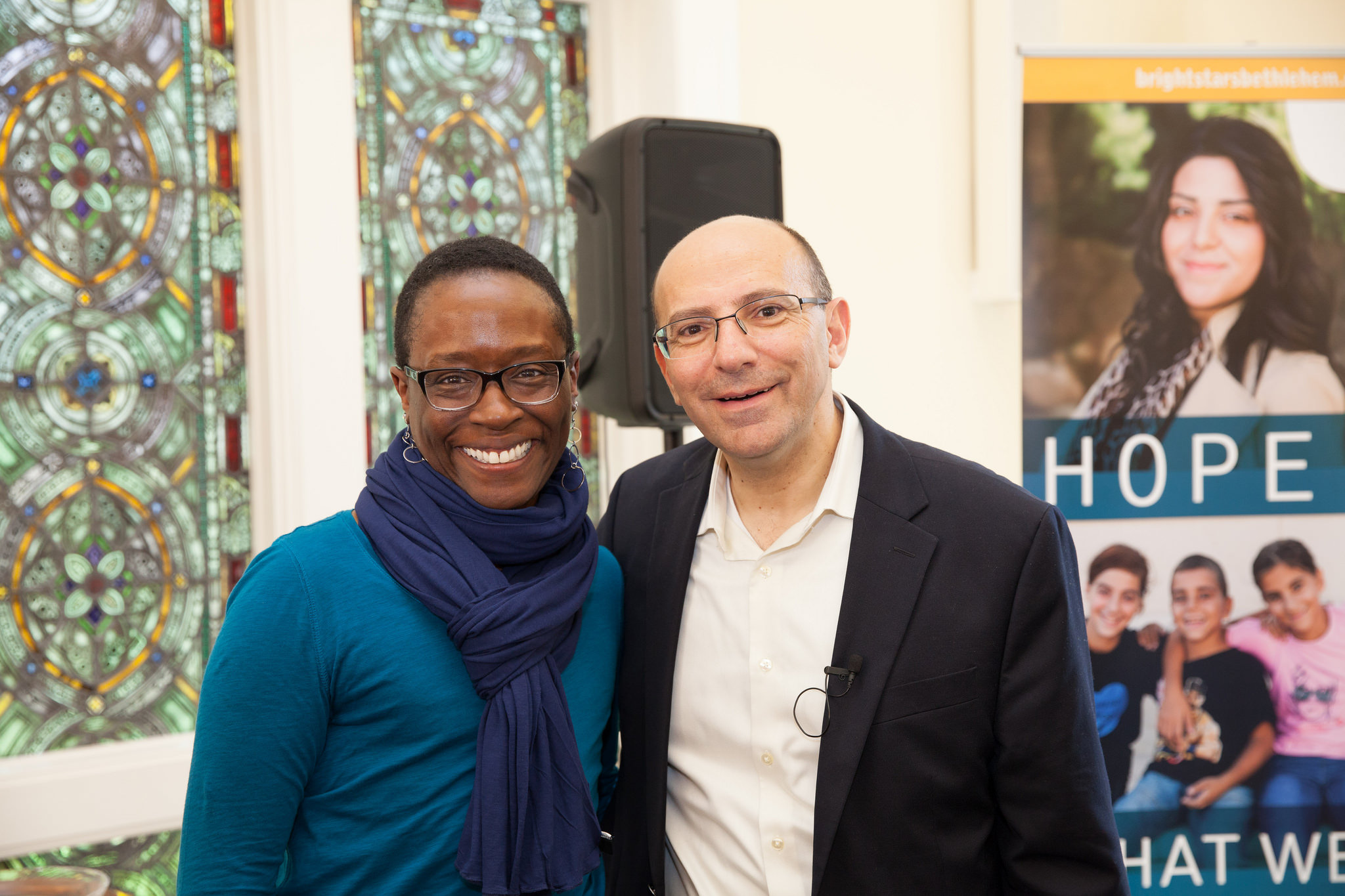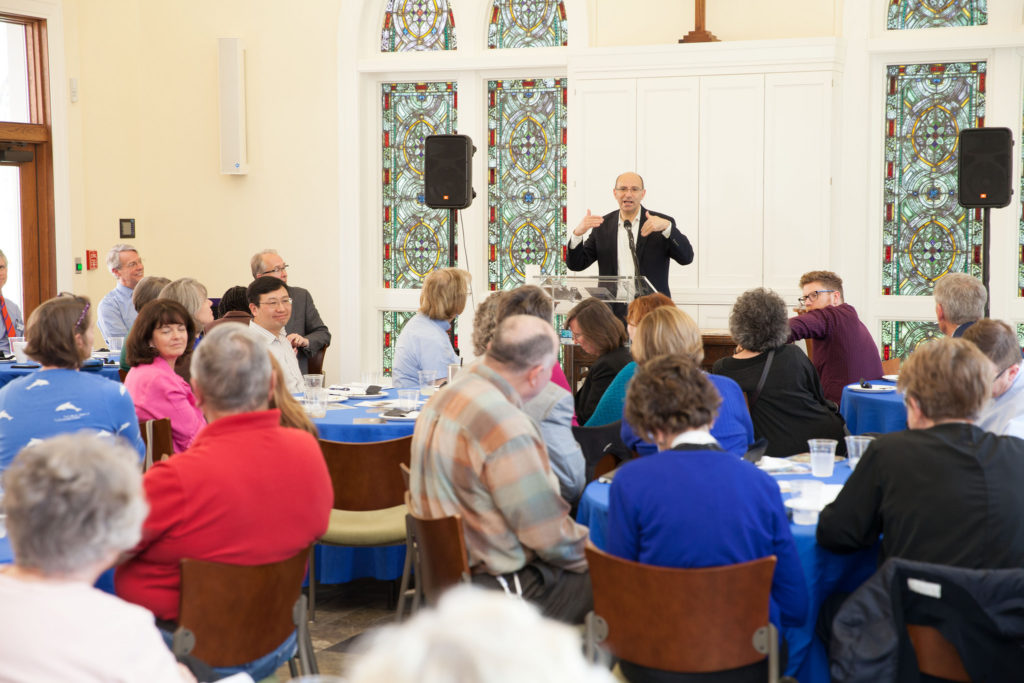Rev. Mitri Raheb brings message of hope to Charlotte campus

By Gail Henderson, M.Div. student
Dr. Mitri Raheb – I had only recently heard about him, about his wisdom, his perspective, his experiences, and his writing. His work and his testimony had been recommended to me less than a month before he came to speak at Union Presbyterian Seminary here in Charlotte, North Carolina. What a gift he was to all who were blessed to hear him. Dr. Raheb is a passionate, thoughtful, funny, insightful, and challenging speaker. He reminded us that the Bible, our sacred Scripture, our sacred stories, came from Palestine, his homeland. The Bible, he informed us, did not come from the Bible Belt. He made us laugh with a story he told related to a trip he once took to Japan. As he waited for his return flight from Tokyo, he found himself thinking about how much he wanted a piece of bread, the kind of bread he ate regularly at home, something that was not readily available in Japan. He said that at that moment he realized Jesus couldn’t have said, “I am the bread of life” in Japan to the same effect as saying such a thing in Palestine.
Then his comments turned to the heaviness and the tragedy of living in a land that has been occupied for centuries, for millennia, by the Assyrians, Babylonians, Persians, Greeks, Romans, and many other occupying forces, including the British, and present-day Israel. He challenged us to consider how the story of the occupied land and the oppressed people there in his home country is similar to the world into which our Savior was born, the world in which Jesus lived and died.
Connecting the 21st-century Palestinian story to Lent, Dr. Raheb remarked that we have the opportunity to find God in new and fresh ways, as we draw near to the cross, and as we stand at the foot of the cross in a few weeks’ time. In Lent, as we read the stories of the Bible and consider the stories of Palestinian people — along with stories of war, exile, refugees, and suffering in other places as well — we also can expect, hope, pray, and prepare to find and experience God in unexpected places. In places of suffering and illness, in pain and sorrow, God is there with those who are hurting — and also with us in our times of trial. As we make our way to the cross this Lent, as we carry our crosses on a daily basis, we also ought to be people of hope. After all, no power, not even the power of empire, can separate us from God or from the love of God. As we look at and consider circumstances in our families, in our cities, in our nation, and in our world that feel hopeless, we must remember that the death of Jesus on the cross was also a hopeless situation. There is not much that is as hopeless as the miscarriage of justice that occurs whenever the empire executes an innocent person that it considers a criminal. But on the night of Good Friday, with the Holy One silent in the tomb, we can remember, we must remember that Sunday is coming! And we must proclaim the Good News of our Risen Lord with hope and great joy.

In the in-between time, between the darkness of the tomb and the bright light of Easter morning, between our prayers for peace and the answers God provides, what can we do? Dr. Raheb provided us with several suggestions. We can use art and other forms of creative resistance to share messages of justice, hope, peace, and courage. We can become engaged citizens in our cities, in our nation, and in our world. We can align ourselves with people on the margins and work to empower them to bring about the change that is needed in their own lives.
I am enormously grateful to Union and all the other organizations and churches that made this event possible. Dr. Raheb’s message was one that will motivate this second-year student to read and study Scripture through a new lens and also with new hope. Thanks be to God.








